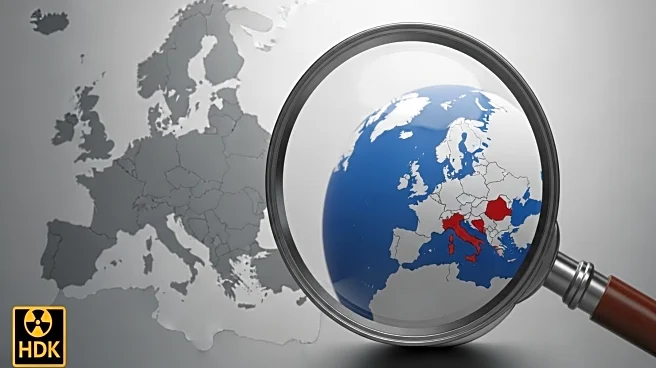What is the story about?
What's Happening?
European officials have warned Iran that it has not yet taken the necessary actions to prevent the reimposition of United Nations sanctions related to its nuclear program. During a recent call with representatives from France, Germany, the United Kingdom, and the European Union's top diplomat, Kaja Kallas, Iran was urged to demonstrate full cooperation with the International Atomic Energy Agency (IAEA) and allow inspections of all nuclear sites without delay. Despite a previous agreement mediated by Egypt to grant the IAEA access to all Iranian nuclear sites, Iran has not yet reported on the whereabouts of its nuclear material. Iranian Foreign Minister Abbas Araghchi has stated that the reimposition of U.N. sanctions lacks legal or logical justification, but has not provided alternative solutions to address European concerns.
Why It's Important?
The potential reimposition of U.N. sanctions on Iran could have significant implications for international relations and regional stability. The sanctions would freeze Iranian assets abroad, halt arms deals, and penalize the development of Iran's ballistic missile program, further impacting Iran's struggling economy. The use of the 'snapback' mechanism, designed to be veto-proof at the U.N., could heighten tensions between Iran and Western countries, especially in the context of ongoing conflicts in the region, such as the Israel-Hamas war. Compliance with IAEA inspections is crucial for maintaining diplomatic channels and avoiding further escalation.
What's Next?
The U.N. Security Council is expected to make a decision by the end of September regarding the reimplementation of sanctions on Iran. If the sanctions are reimposed, it could lead to increased diplomatic and economic pressure on Iran, potentially affecting its nuclear policy and international relations. The situation remains tense, with stakeholders closely monitoring Iran's actions and the international community's response.
Beyond the Headlines
The broader implications of this situation include potential shifts in geopolitical alliances and the balance of power in the Middle East. The diplomatic efforts to resolve the nuclear issue highlight the complexities of international negotiations and the challenges of enforcing compliance with global agreements. The outcome may influence future diplomatic strategies and the role of international organizations like the IAEA in monitoring nuclear activities.

















